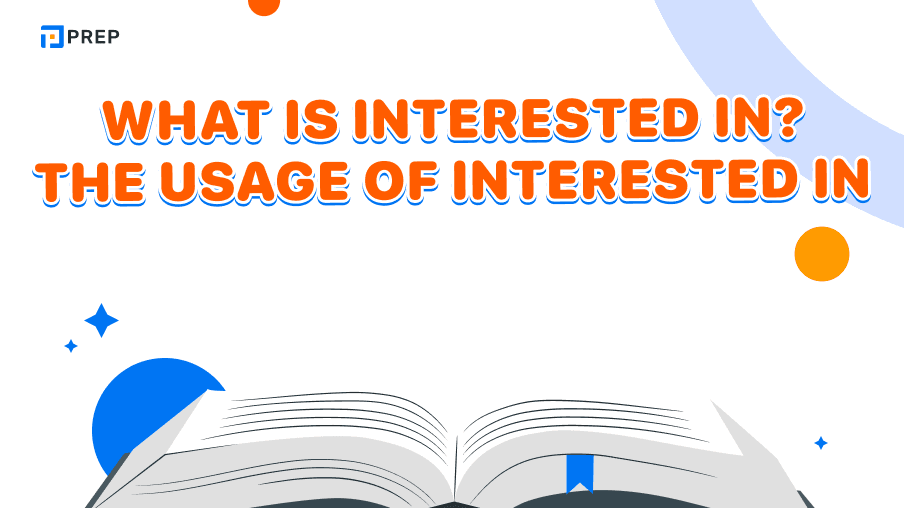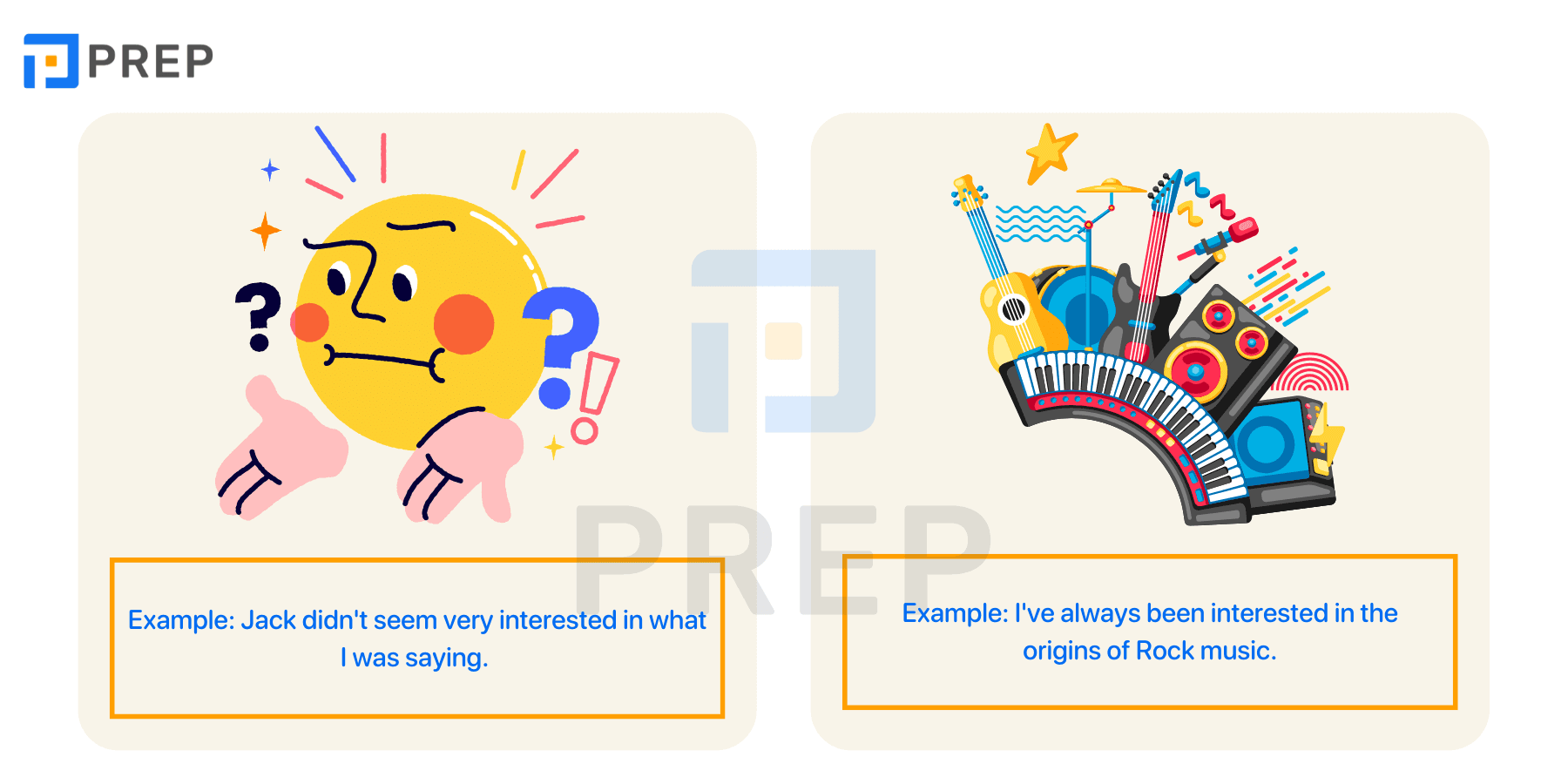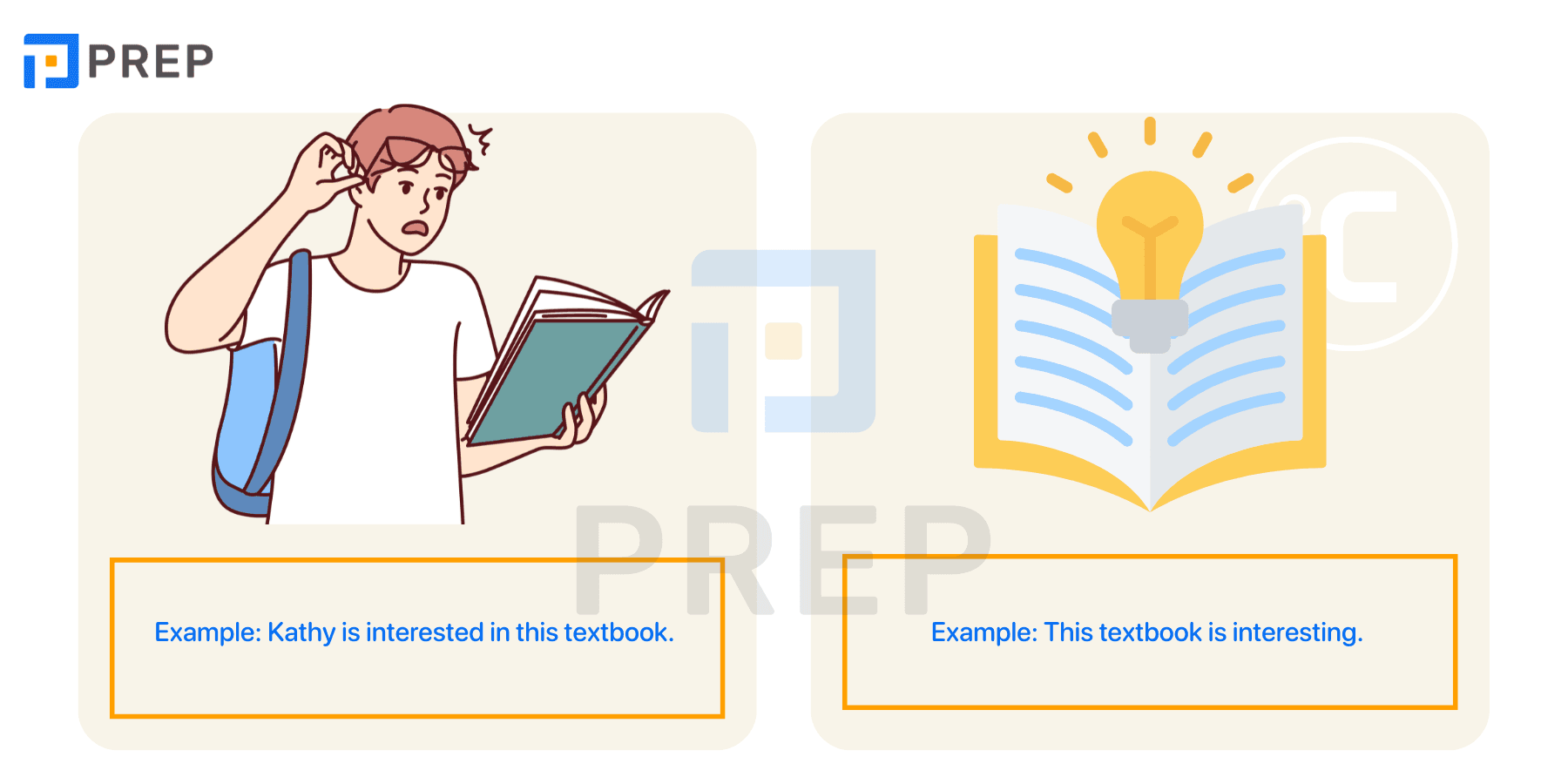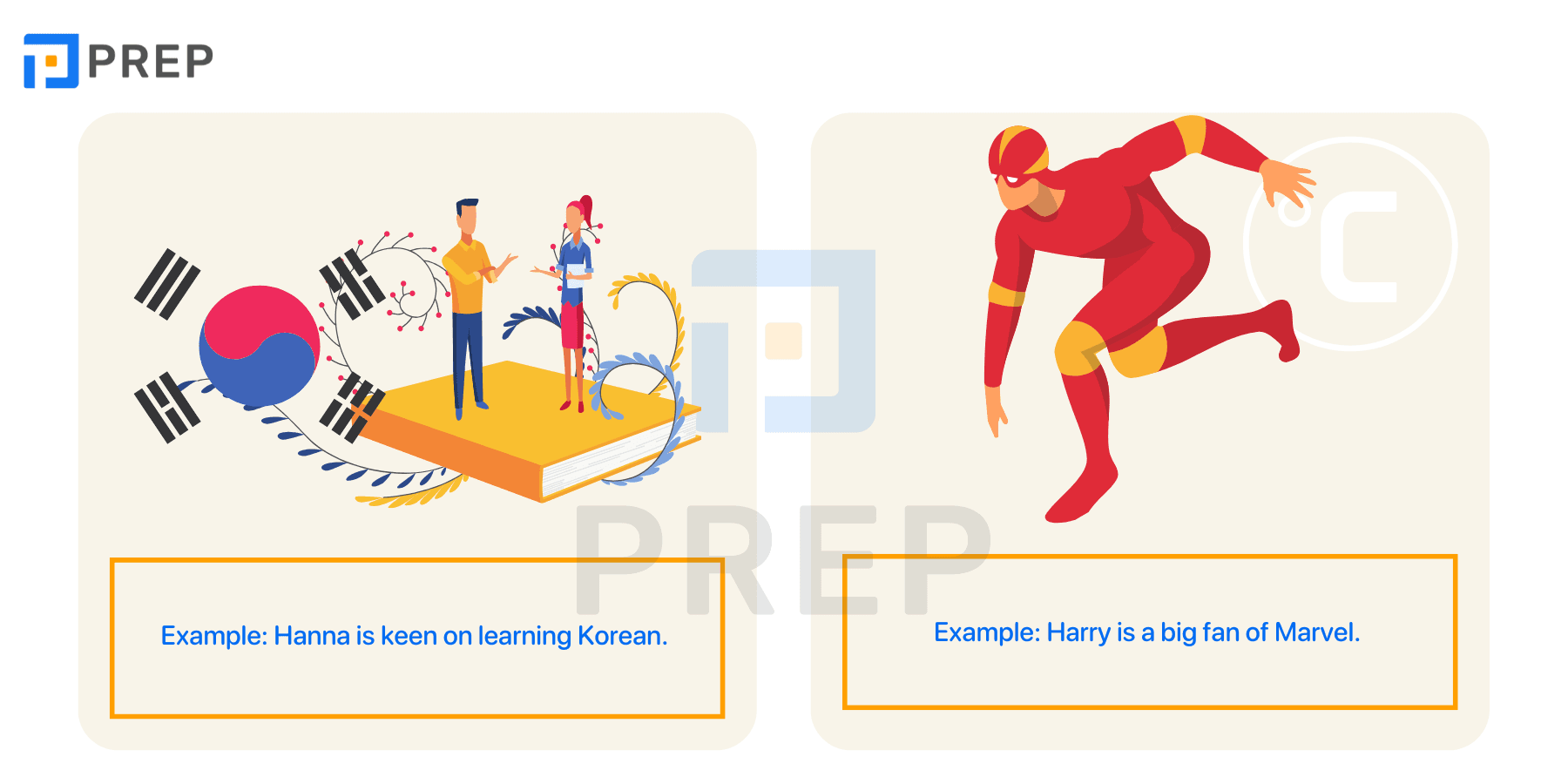Interested in English: Grammar, Usage, and Practice
“Interested in English” is a common phrase that learners often use—but not always correctly. This guide will help you understand its grammar structure, differentiate it from “interesting,” use it naturally in conversation and academic writing, and avoid the most common learner mistakes.

I. What Does “Interested in English” Mean?
The phrase “interested in English” is a common expression used to show personal interest or curiosity toward learning or using the English language. To understand how to use it correctly, we need to look at both its grammatical structure and meaning.
“Interested” is an adjective that describes a person’s feeling or emotional state. When combined with the preposition “in”, it forms the structure:
be + interested in + noun / verb-ing
Examples:
- She is interested in English.
- They are interested in learning English.
This construction means that the subject has an active curiosity or enthusiasm about something.

Learners often get confused about whether to use interested in, interested at, interested about, etc. In standard English grammar, "interested" is always followed by "in" when referring to what someone is curious or excited about.
- Incorrect: I’m interested about English.
- Correct: I’m interested in English.
The preposition "in" introduces the topic or area of interest.
The phrase can be used in various contexts:
- Expressing personal hobbies or learning preferences
→ I’ve always been interested in English movies. - Describing motivations or goals
→ He’s interested in improving his English for work.
This structure is especially useful for speaking and writing tasks in English exams, especially when talking about learning goals, study habits, or career directions.
II. Interested vs. Interesting: What’s the Difference?
Many English learners confuse "interested" and "interesting" because they look similar and are both derived from the verb "interest." However, they serve different grammatical purposes and should be used based on the subject and meaning of the sentence.
Grammar Category and Sentence Function
|
Word |
Part of Speech |
Usage Description |
Example |
|
interested |
Adjective (past participle) |
Describes how a person feels |
I am interested in English. |
|
interesting |
Adjective (present participle) |
Describes something that causes interest |
English is interesting to me. |
Key distinction:
- Use "interested" to describe someone's feeling.
- Use "interesting" to describe something that causes that feeling.

Implications for Exams (IELTS, TOEIC, TOEFL)
Mistakes in adjective choice and sentence structure can reduce your score in grammatical range and accuracy, especially in writing and speaking sections.
For example:
IELTS Writing Task 2:
- Precise: This issue is particularly interesting for young learners.
- Imprecise: This issue is interested by many people.
Speaking Part 1:
-
Good response: I became interested in English when I started watching English movies without subtitles.
Using the correct adjective helps convey your meaning clearly and shows better control of English grammar and vocabulary.
Beyond this pair, you’ll also find it useful to study more adjectives with prepositions to avoid misuse in speaking and writing.
III. Verbs and Nouns Commonly Used After “Interested in”
In English, the phrase “interested in” is followed by either a noun or a gerund (the -ing form of a verb). Using the correct structure after “interested in” is essential for accurate communication, especially in writing, speaking tasks, or standardized English exams.
Verbs Commonly Used After “Interested in” (Verb-ing) - Here is a list of frequently used verbs that naturally follow “interested in” in the -ing form:
|
Verb (-ing form) |
Example Sentence |
|
learning |
I’m interested in learning new languages. |
|
reading |
She’s interested in reading novels about history. |
|
traveling |
They are interested in traveling to Southeast Asia. |
|
working |
He’s interested in working in the education field. |
|
improving |
We’re interested in improving our communication skills. |
|
joining |
Are you interested in joining our study group? |
|
teaching |
I became interested in teaching after college. |
|
studying |
He’s interested in studying English abroad. |
Important note: Since “in” is a preposition, any verb that follows should be in the gerund (-ing) form, not the base form.
- Incorrect: I’m interested in learn grammar.
- Correct: I’m interested in learning grammar.
To deepen your grammar, you can review how gerunds are used in other contexts, such as the perfect gerund.
Nouns Commonly Used After “Interested in” -“Interested in” can also be followed directly
|
Noun / Noun Phrase |
Example Sentence |
|
English |
Many students are interested in English. |
|
science |
She’s interested in science and technology. |
|
sports |
My brother is interested in sports, especially football. |
|
photography |
I became interested in photography during high school. |
|
artificial intelligence |
He’s interested in artificial intelligence. |
|
architecture |
We’re interested in architecture and urban design. |
|
marketing |
Are you interested in marketing and branding? |
|
education |
She’s interested in early childhood education. |
When building longer sentences, “interested in” is often followed by a noun phrase, which allows you to express ideas more precisely.

IV. How to Use “Interested in English” in Different Contexts
While “interested in English” is structurally simple, its effectiveness depends on how well it is adapted to specific contexts. Understanding the tone, purpose, and grammatical precision expected in different settings allows learners to use this phrase clearly and appropriately.
Conversational and Everyday Contexts
In casual interactions, the phrase “interested in English” is used to communicate personal interest simply and naturally, often related to hobbies, media preferences, or self-study.
Key usage goals:
- Show enthusiasm for learning English in informal discussions
- Explain why you attend English classes or consume English-language content
- Respond to questions about study habits or learning interests
Correct usage relies on:
- Choosing simple present tense for current interests
- Avoiding translation-based errors (e.g., “I interested in English” or “I’m interesting in English”)
Tone note: Conversational use allows for more flexible sentence structure, but correctness in "be + interested in + noun/V-ing" should remain consistent.
Academic and Test Contexts
In formal, academic settings such as essays, presentations, or standardized exams (IELTS, TOEFL, CEFR), “interested in English” is used to express educational motivation, study preferences, or reasons for academic choices.
Key usage goals:
- Justify your reason for choosing English as a subject or major
- Introduce long-term learning goals in language development
- Explain a personal learning journey using logical and descriptive language
Typical structures to aim for:
- I became interested in English after...
- My growing interest in English led me to...
- Students who are genuinely interested in English tend to...
Stylistic note: Avoid using vague follow-ups after “interested in”. Be specific (e.g., “interested in English linguistics” rather than just “in English”).
V. Exercises on Interested in with answers
Mastering the use of “interested in” requires more than just understanding its structure—it also involves applying it correctly across different sentence forms and contexts. The following exercises are designed to help you reinforce what you've learned through recognition, correction, and sentence building.
Exercise 1: Multiple Choice
Choose the correct option to complete each sentence.
- She is interested ___ learning new languages.
a) to b) in c) on - I’ve always been interested ___ English grammar and writing.
a) at b) about c) in - They were interested ___ joining the debate club.
a) for b) in c) with - He is interested in ___ a job in international education.
a) find b) finding c) found - We are interested ___ discussions about global issues.
a) in b) on c) of
Exercise 2: Error Identification and Correction
Find the error in each sentence and rewrite it using correct grammar.
- I’m interest in study English.
- She is interesting in academic writing.
- Are you interested about taking part in this course?
- They interested in to travel abroad for work.
- He was very interested for learning business English.
Exercise 3: Sentence Completion
Complete the sentences using your own ideas after “interested in.” Use either a gerund (V-ing) or a noun.
- I’m really interested in ___________________________.
- She became interested in _________________________.
- Many students are interested in ____________________.
- We’re not interested in _____________________________.
- Are you interested in ______________________________?
Answer
|
Exercise 1 |
Exercise 2 |
Exercise 3 |
|
|
|
The above is all the knowledge about Interested in, including the formula, usage notes, and equivalent structures. For a structured study plan, check our guide on learn English grammar, which connects all these rules together. PREP hopes you have a clear understanding of this vocabulary and can use it fluently in exams and daily communication. Wishing you success!

Hi I'm Chloe, and I am currently serving as an Product Content Administrator at Prep Education. With over five years of experience in independent online IELTS study and exam preparation, I am confident in my ability to support learners in achieving their highest possible scores.
Comment
Premium content
View allPersonalized roadmap
Most read












